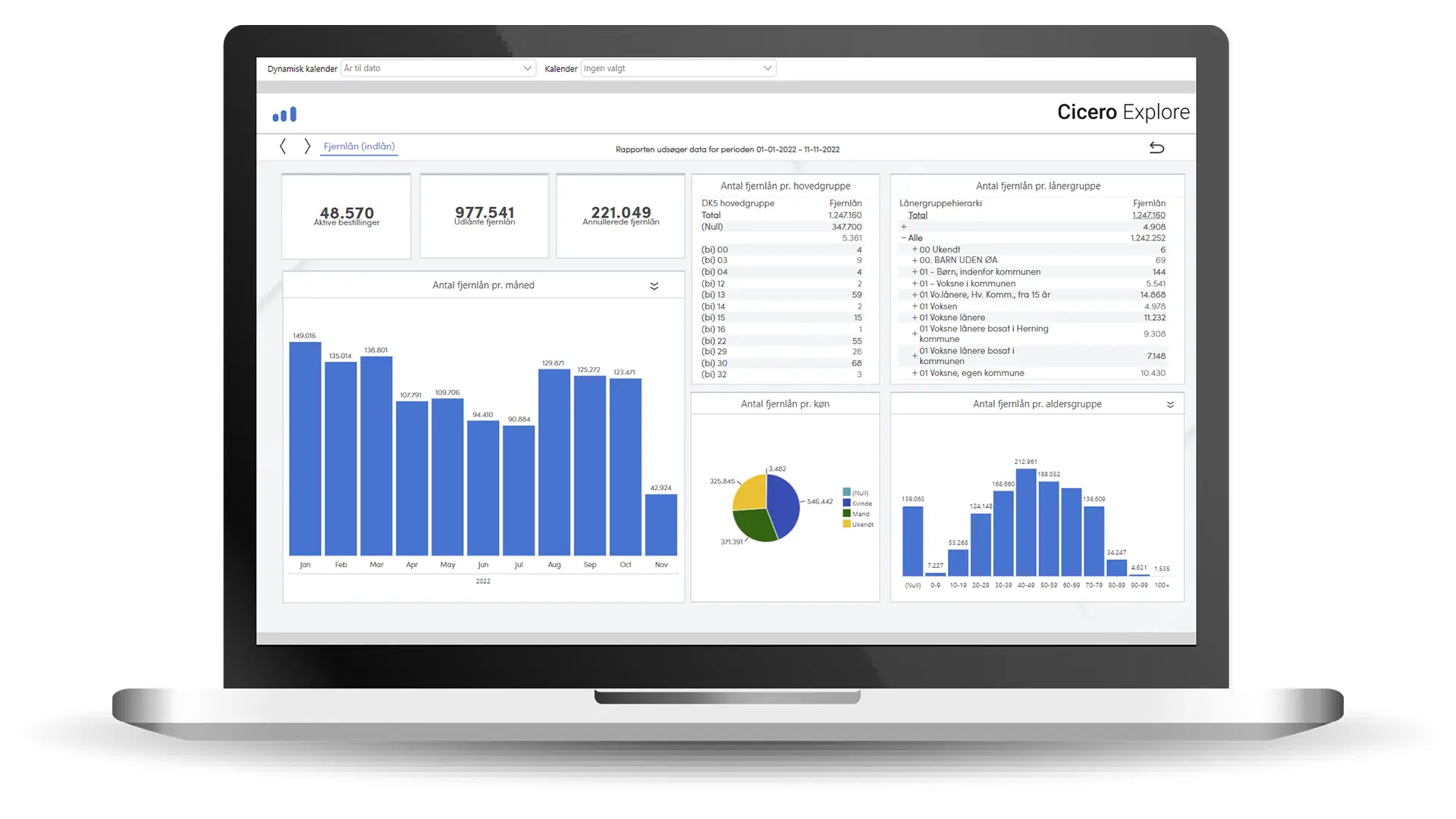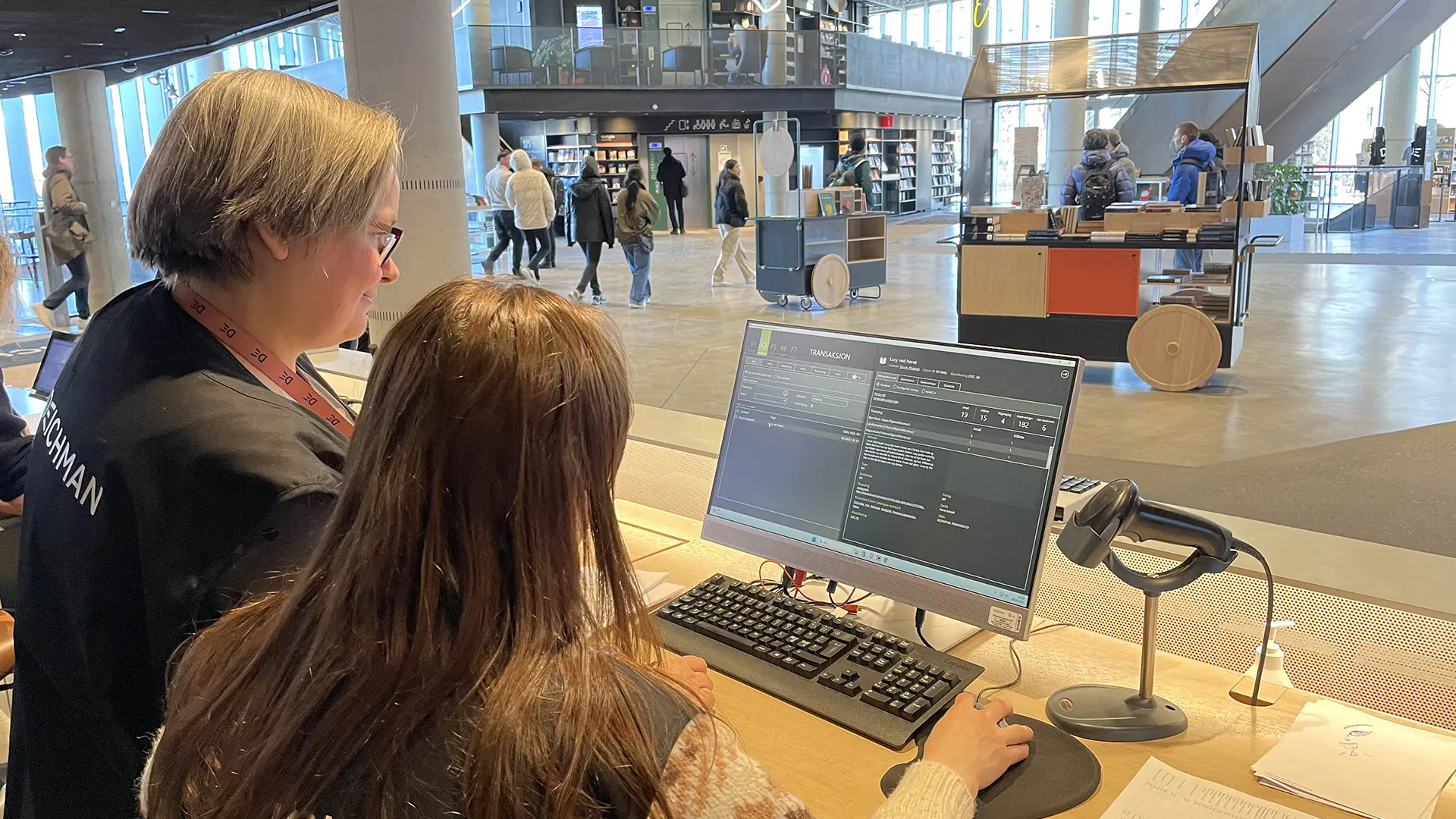
Cicero, a modern library solution, provides the digital foundation for public and school libraries of all sizes and makes it easy to cooperate and share knowledge across organisations.
The modular design makes it simple to select and add the features you need, and open APIs enable easy integration with both existing and new digital solutions. Supremely stable and secure, Cicero’s ‘software-as-a-service’ setup makes sure that the solution is constantly updated and maintained. Agile development cycles ensure new functionalities every two weeks – all of which are free to users in all markets.
Modern standards and seamless library integration
Cicero follows modern metadata standards such as Marc21, Resource Description and Access (RDA) and Functional Requirements of Bibliographic Records (FRBR) as well as national standards like DanMarc2.
Natural integration with external library infrastructures removes many repetitive tasks and assures the correct data upload. The integrations vary according to country, but common integrations are purchase platforms, cataloguing data, user registry synchronising with national registries, and more. Integrations help automate as many processes as possible and enable Cicero to work with both shared and unique catalogues as well as supplier material lists.
Built on modern technology and designed to work with solutions from other suppliers, Cicero is designed to support content and knowledge sharing across schools, libraries, and publishers etc. The solution’s microservice architecture also ensures scalability and flexibility towards future development as library needs continue to evolve.
Privacy by design
Cicero is designed, built, and maintained with principles such as privacy by design and a strong focus on personal data protection. Data processing procedures are already integrated in the Cicero technology which results in better and more reliable data security. All data in Cicero are stored on servers within the EU to support local legislation.
The complete solution for modern and ambitious libraries
The Cicero Suite comprises four key modules tailored for modern libraries: Cicero Mobile, a web-based tool for on-the-go library staff; Cicero Slide, a self-service option for smaller or unstaffed libraries; Cicero Surf, an online user portal for searching and managing loans; and Cicero Explore, a business intelligence module for data-driven decision-making. Together, these modules enhance efficiency, user experience, and operational insights.
Dive into the different modules.
Cicero Mobile
The ‘on the go’ solution for modern libraries
Cicero Mobile is the core of the system and easy and intuitive to use, whether you need specialist functions in a large library or are a generalist with very few hours in a small library.
Cicero Mobile is a fully web-based module designed to make life easier on the go. With Cicero Mobile, library staff can check materials and help users as they move through the library.
It greatly improves staff efficiency and allows for quick task overviews from anywhere.
The browser-based design works on any device and is perfect for taking the library on the road. From events, pop-up libraries, and book festivals to library busses and other events, it allows the sharing of knowledge outside the walls of the traditional library.
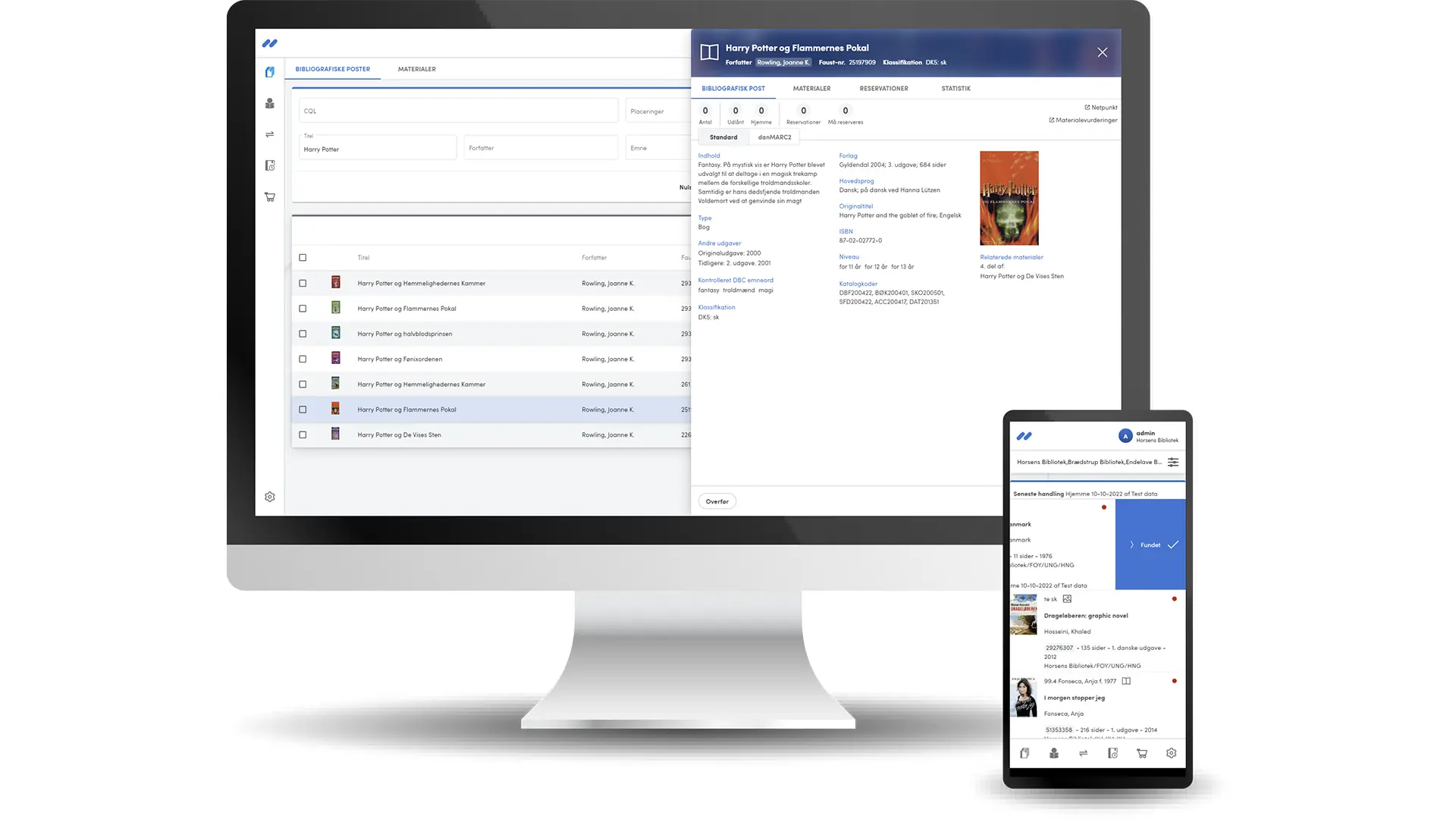
Cicero Slide
Perfect for smaller or unstaffed libraries
With Cicero Slide, smaller libraries and school libraries can offer users a simple and intuitive touchscreen solution for loaning, returning, and checking status on current loans. The web-based module works on tablets, smartphones, Chromebooks, and laptops, making it easy to integrate in most settings.
Thanks to its quick and responsive scanning function, Cicero Slide can be operated by users of all ages. That makes Cicero Slide a perfect choice for unstaffed school libraries or as smart self-service option for public libraries where the staff can be freed up for other tasks.
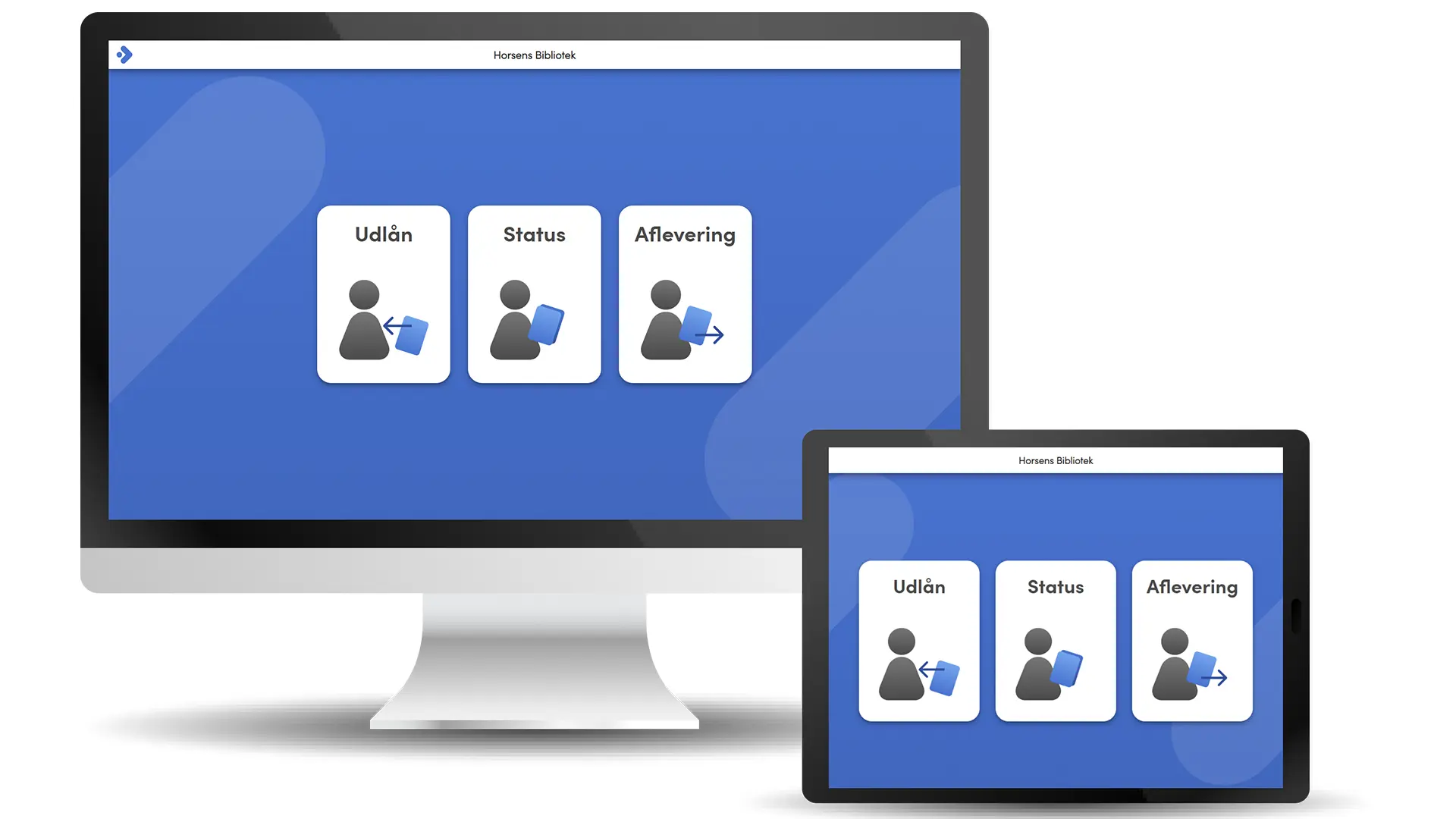
Cicero Surf
The smart user interface for smaller libraries
Cicero Surf provides libraries with their own online portal for users to search the library holdings, reserve books, and check their status for loans and reservations. The module can be used on all devices and the interface can be customised with colours, logos, and carousels to promote books or categories.
With Cicero Surf, users can log in using Single Sign On (SSO) or username and pin code. Loging in with SSO also gives access to the library’s electronic content such as the number of copies available – and it also connects with any other proprietary services.
Cicero Surf also allows users to search and reserve items at collaborating libraries. When used in school libraries, teachers can use the Cicero feature “booking” to loan sets of books for their entire classes, making it a smart tool to support learning plans and curriculums.
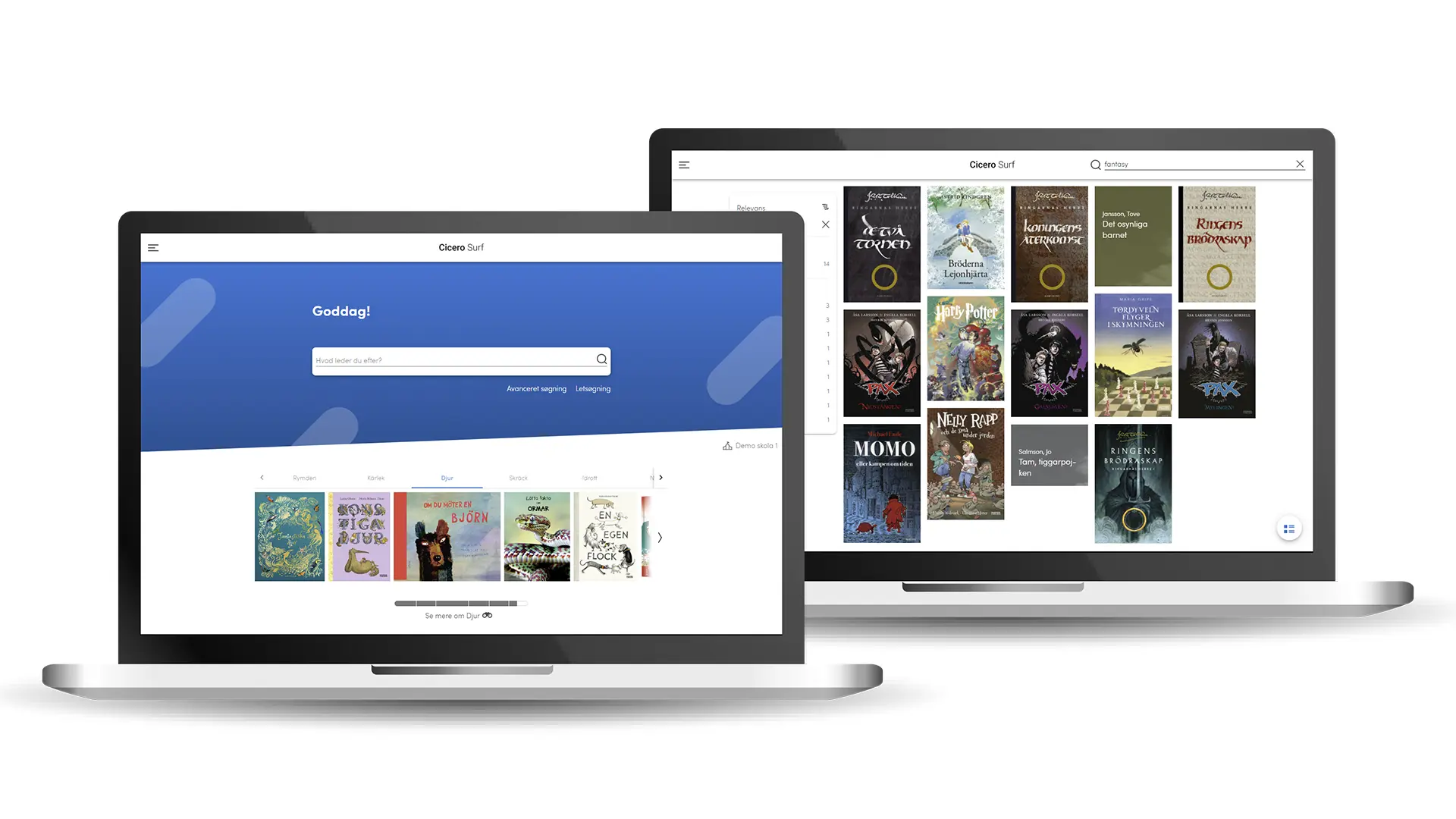
Cicero Explore
Impressively smart library statistics
The efficient operation and performance of any modern library relies greatly on the smart use of data. By leveraging usage data, libraries can increase efficiency, streamline operations, and improve offerings to their users.
Cicero Explore is a specialised business intelligence module for Cicero offering advanced BI and analytics capabilities.
The module lets users create data overviews, insights, and customised reports to increase efficiency, improve decision-making, and save valuable resources.
With Cicero Explore, users can generate clear and flexible analytical boards that graphically illustrate material usage, interlibrary loans, local material fluctuations, user behaviour, staff performance, and much more. The advanced features of Cicero Explore enable libraries to become truly data-driven and leverage the full potential of their data to improve their operations and overall offerings.
